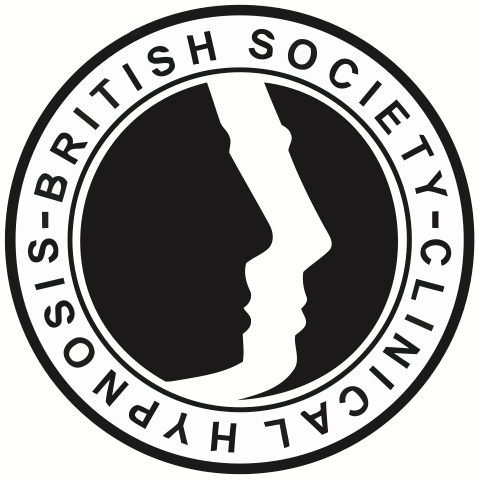In light of the incredibly brave and talented Lewis Capaldi in sharing his personal journey with Tourette’s Syndrome in his Netflix documentary “How I’m Feeling Now” and his emotional Glastonbury set I thought it prudent to write a little on the positive effects Clinical Hypnotherapy and associated therapeutic techniques, can have on Tourette’s Syndrome and Tics in general, both vocal and physical.
Clinical Hypnotherapy for Tourette’s Syndrome

It’s estimated that 85% of people with Tourette’s struggle with additional conditions including ADHD and / or OCD. For many people, these related conditions can be more of a struggle than Tourette’s alone.
Stress and anxiety as most people know, can exasperate a whole host of physical and psychological conditions and it certainly makes the symptoms of Tourette’s more pronounced and problematic.
Hypnotic techniques can be used to develop fresh neural pathways, calm the nervous system and bring about a sense of control for people with Tourette’s as they realise that there are times and places when they are entirely able to control their tics.
While there have only been a few small scientific studies specifically examining the effectiveness of clinical hypnotherapy for Tourette’s to date, it is certainly worth considering as a complementary therapy alongside other mainstream treatment options.
It’s important to note that Tourette’s syndrome is a neurological disorder characterized by repetitive, involuntary movements, and vocalizations called tics. It is typically managed through a combination of behavioural therapies, medications, and support strategies. Hypnosis should not be considered a standalone treatment for Tourette’s syndrome, but rather as a potential adjunct to existing therapies.
Hypnosis can be extremely beneficial for people with Tourette’s in several ways:
- Relaxation and stress reduction: Hypnosis can help induce a relaxed state, which may help reduce stress and anxiety, which can in turn alleviate tics in some cases. Stress and anxiety often exacerbate tics, so finding effective ways to manage these factors can be helpful.
- Increased focus and concentration: Hypnosis techniques can assist individuals in improving their focus and concentration. This may be particularly useful for individuals with Tourette’s syndrome who experience attention difficulties due to tics.
- Habit reversal training: Hypnosis can be used in conjunction with habit reversal training (aka HRT not to be confused with Hormone Replacement Therapy!) which is a well-established behavioural therapy for managing tics. HRT involves identifying the premonitory sensations or urges that precede tics and learning alternative responses or competing responses to interrupt or replace the tic. Hypnosis can enhance the effectiveness of HRT by promoting relaxation, visualization, and suggestion techniques.
If you’re interested in exploring hypnosis as a complementary therapy for Tourette’s syndrome, it’s important to work with a qualified and experienced clinical hypnotherapist who has knowledge and understanding of the condition. They should be able to customise sessions to address your specific needs and goals.
Finding a good clinical hypnotherapist requires careful consideration and research. Here are some steps to help you find a good one:
Define your goals: Determine what you hope to achieve through hypnotherapy. Whether you’re seeking help for Tourette’s, general anxiety, smoking cessation, weight loss, or any other issues, having a clear idea of your goals will help you find a hypnotherapist who specialises in the areas you need.
Seek recommendations: Ask your friends, family, or healthcare professionals for recommendations. Personal referrals can be valuable as they come from individuals you trust. If you know someone who has had a positive experience with a hypnotherapist, ask for their contact information.
Research credentials and certifications: Look for hypnotherapists who have appropriate credentials and certifications. Check if they have completed a recognised hypnotherapy training program from a reputable institution.
Review their experience: Look for hypnotherapists who have experience working with the specific issue you want to address. Hypnotherapy encompasses various specialties, so finding someone with relevant experience can increase the likelihood of achieving positive results.
Check their reputation: Conduct online research to gather more information about the hypnotherapists you are considering. Read reviews and testimonials from previous clients to get an idea of their reputation and success rate. Look for any red flags or warning signs.
Arrange a consultation: Many hypnotherapists offer a free initial consultation or a brief phone call to discuss your needs and answer any questions you may have. Use this opportunity to assess their communication style, professionalism, and whether you feel comfortable working with them.
Verify ethical practices: Ensure the hypnotherapist adheres to ethical guidelines and maintains confidentiality. They should prioritise your well-being and provide a safe and supportive environment for the therapy sessions.
Trust your instincts: Trust your gut feeling about the hypnotherapist. It’s important to feel comfortable, supported, and understood during the therapy process. If something doesn’t feel right or you have doubts, consider looking for another hypnotherapist.
Remember, finding a good hypnotherapist is a personal decision, and what works for one person may not work for another. Take your time, do thorough research, and choose a hypnotherapist who aligns with your needs, goals, and preferences.
A note from the author: As a Psychotherapist and Clinical Hypnotherapist, I have extensive experience in working with clients navigating their way through Tourette’s Syndrome (and associated conditions) helping them manage and control their tic’s, both motor and vocal.
Always consult with a healthcare professional who specialises in Tourette’s syndrome or a qualified therapist to discuss treatment options and determine the best approach for managing your symptoms.








